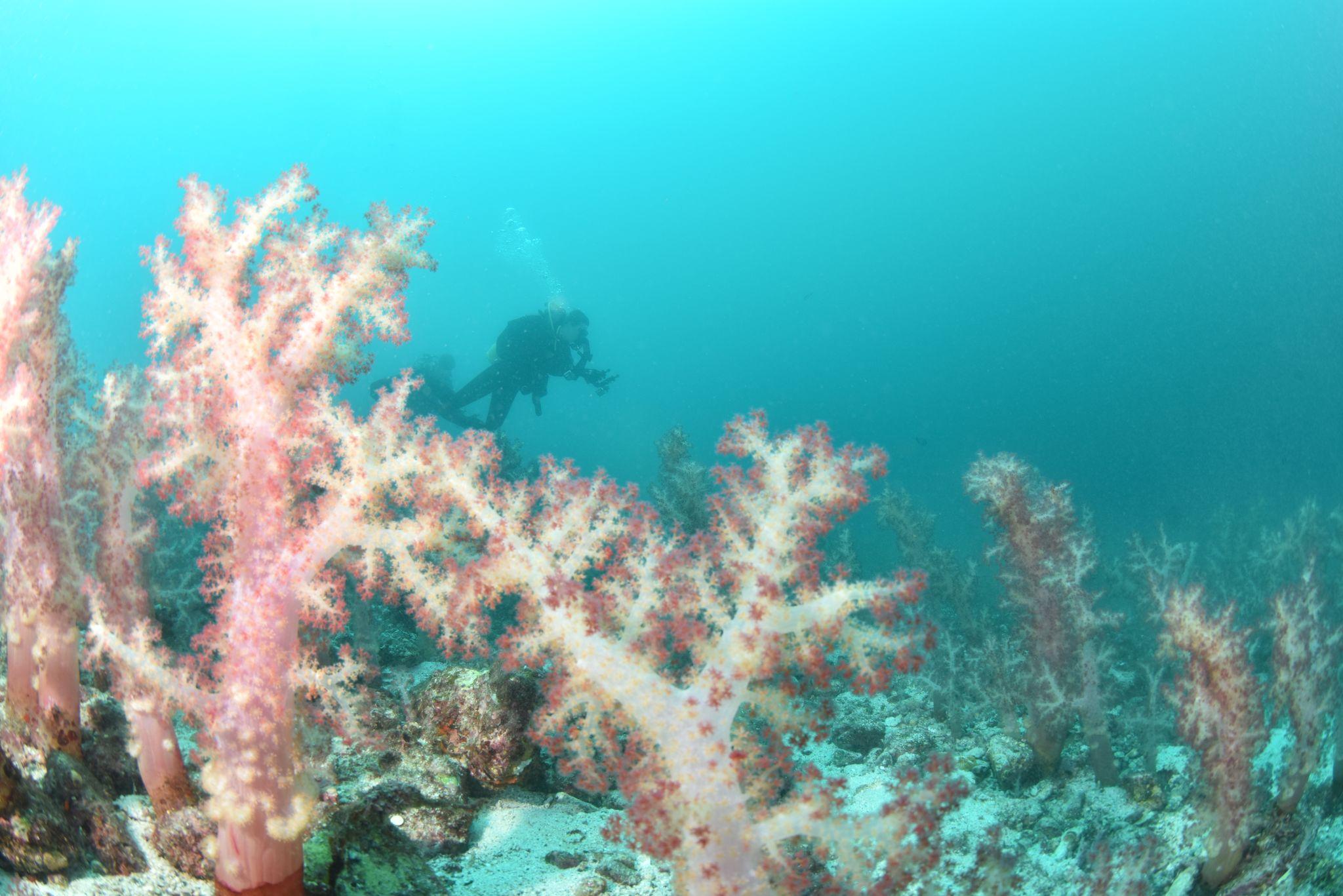
Image: Collecting community data on soft corals in Japan
Community dynamics of soft and hard coral reefs
Supervisor: Dr Emily Mitchell
Co-supervisors: Professor Andrea Manica and Professor James Reimer (University of Ryuku)
This project will investigate how ecological interactions and associations vary between different coral reef communities, with different proportions of hard and soft corals. Okinawa, Japan has exceptional coral reefs that are easily accessible, many with an unusually high proportion of soft-corals. Fine-scale ecological and network analyses will be used to investigate how different proportions of soft corals impact community dynamics. The student will establish what impact different environmental and anthropogenic factors have coral communities, what the role of body-size and traits are on any differences, and so investigate the driving forces behind ecosystem structure.
Type of work
The student will collect new data from coral reefs in Okinawa through scuba diving under the guidance of Prof Reimer and his group. These video data will be used to create 3D models of the reefs using photogrammetry, from which maps will be made identifying the individual corals. The sessile nature of corals and other benthos means that their position on the seafloor, coupled with their size, captures their life-history interactions. Therefore, analyses of the spatial positions of the corals within their communities can be used to identify the fine-scale habitat associations and competitive and facilitative interactions between species. Bayesian network inference, will enable large-scale ecological drivers and trends to be determined, and future predictions made in how the dynamics may shift with differing abundances of coral taxa.
Importance of the area of research concerned
Coral reefs are the most diverse ecosystems on the planet. Yet, relatively little is known about the fine-scale community ecology of coral reefs, and how the dynamics of soft and hard corals and other benthos differ. The project aims to determine the drivers of community structure of coral reefs using newly developed methodologies for the analyses of community ecology and 3D model reconstruction. This work will enable us to investigate the drivers behind community dynamics and how coral taxa interact with each other and their environment. By establishing how these communities operate, it will be possible to get a better understanding to how these communities are liable to change under ongoing and future climate change.
References
Mitchell EG, Whittle RJ, Griffiths HJ 2020. Benthic ecosystem cascade effects in Antarctica using Bayesian network inference. Nature Communications Biology. 3:582
Lalas JA, Jamodiong EA, Reimer JD. Spatial patterns of soft coral (Octocorallia) assemblages in the shallow coral reefs of Okinawa Island, Ryukyu Archipelago, Japan: Dominance on highly disturbed reefs. Regional Studies in Marine Science. 2024 71:103405.
Mitchell EG, Harris S. 2020 Mortality, Population and Community Dynamics of the Glass Sponge Dominated Community “The Forest of the Weird” From the Ridge Seamount, Johnston Atoll, Pacific Ocean Frontiers in Marine Science doi: 10.3389/fmars.2020.56517
